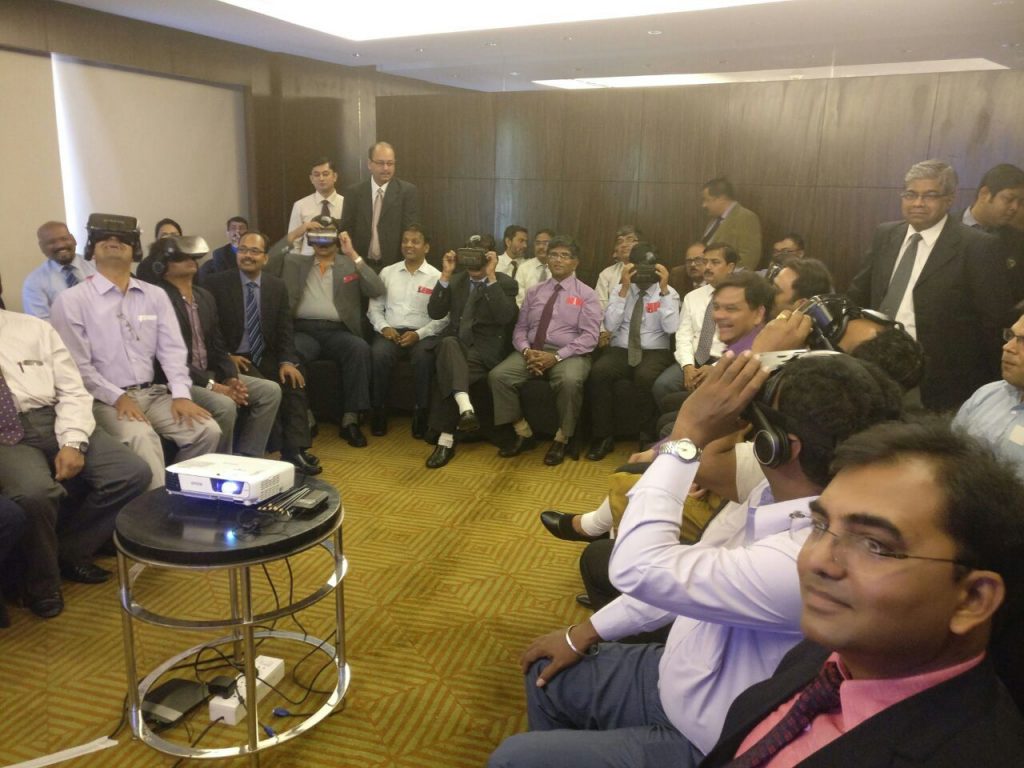Organisations are now looking to bring in experiential methods in order to ensure learning applicability while making the trainings more real-time.
Ever been a part of a fire drill at a workplace? It starts with people receiving a mail one morning, informing them of the time the drill will take place so that they may adjust their schedules accordingly. At the pre-decided time, all that people do is, happily get off their desks, chit-chat along the way down the stairs to their building lobbies and then out in the open. They light a cigarette or bask in the sun while chirping around with buddies – in short – that’s a good break from work! But, what if there was a real fire breakout?
Mock drills like these do not really train people on quick decision-making abilities and other capabilities that may be required in the real situation. Similarly, traditional training methods or classroom trainings can also be compared to such mock sessions that do not add much value to the learner and are mostly seen as a fun exercise, or a break from the general routine at the most. Breaking the monotony of traditional training methods, organisations are now looking to bring in experiential methods in order to ensure learning applicability, while making the trainings more real-time.

GlaxoSmithKline India recently experimented with virtual reality to bring in that real-time experience in trainings. It conducted a trainers’ training session in Mumbai on Tuesday, where, about 40 internal trainers were exposed to real scenarios through the use of VR headsets. “The objective of the initiative was to introduce our team of trainers or the L&D team to the various possibilities that VR presents,” says Sunder Ramachandran, general manager – training, at GlaxoSmithKline Pharmaceuticals India.
People were engaged in a three-dimensional virtual reality game, which had a unique storyline and each of the participants had a part to play in that storyline, which offered a visual immersive experience. While this made the experience more life-like, it showed how people would react in a real situation. “It is a bit different from simply telling people to imagine an earthquake than letting them see one and then react. When all your senses are involved in an experience, your real behaviours start emerging,” Ramachandran adds.
People were engaged in a three-dimensional virtual reality game, which had a unique storyline and each of the participants had a part to play in that storyline, which offered a visual immersive experience.
While this made the experience more life-like, it showed how people would react in a real situation.
Such initiatives could come in handy not only for organisational safety trainings, such as a fire drill, but also for other business trainings, such as a sales training in the case of GSK India. Ramachandran shares an example — “Our sales people need to meet doctors at hospitals for business discussions, while hospitals are not a very happy place to be — with a lot of chaos and crowd, with people in pain and discomfort all around. This means one needs to cut through all that and be able to focus only on the customer and the business. In this case, a simple instruction manual or a classroom session would not be able to prepare them for reality. However, virtual reality can make a big difference in how they will need to behave.”
Trainings conducted through virtual reality help prepare people a lot better, to be able to handle real-life situations, than any other training method would do. That said, organisations in India still haven’t really fully adopted the technology yet. Gamification in trainings is the most that organisations have achieved so far. However, in terms of introducing virtual reality in L&D, there are only a handful of companies that have begun taking steps in that direction, GSK being one.

Virtual reality has today become very prominent in gaming and entertainment, but organisations still lag behind in adopting it for business trainings. On the other hand, Ramachandran believes that “The vendor network in India is quite mature with various solution providers specialising in virtual reality. However, while organisations in India are still struggling to move away from the traditional approaches, at the same time, they are also opening up to the idea of experimenting with newer approaches. As long as there is appetite in India to consume these technologies, the capabilities already exist.”
The programme that GSK conducted recently was aimed at making its trainers comfortable with the idea first; to let them experience it themselves before the company proceeded to implement it at the organisational level. As a part of the digital learning strategy at GSK India, this advent of virtual reality in trainings sure looks like a good leap in terms of making learning more fun and applicable.




6 Comments
Great experience..
Beyond imagination
Experience beyond imagination… New way of learning with instant impulse and decision
A new experience of virtual learning this can help in implementing new ways in talent evolution process.
Larking will be interesting
Like New way of working, now new way of Learning. Good to see , Mr.Sundar GM GSK coming up with new possibilities in Learning. Kudos
After Gamification this is one thing which excited me a lot.. Time is not far when training will be provided with the help of sixth sense technology!